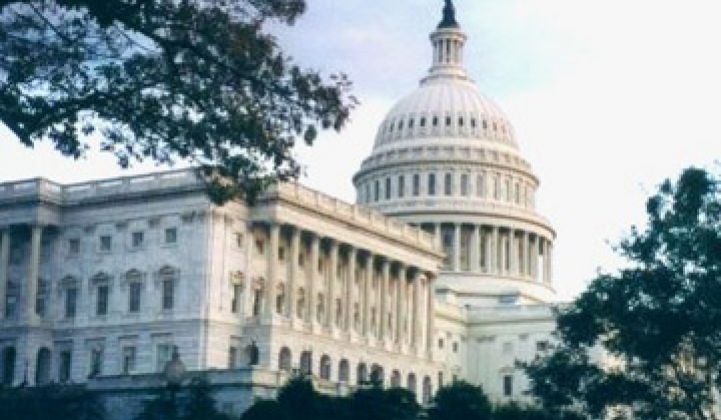The United States Tax Grant Program (TGP), also known as 1603, has been the main driver for the strong growth of renewable energy in the U.S. in 2010. To date, 1,179 solar projects with total investments of over $1.3 billion in 42 states have been built with support from this program.
It's now at risk.
The program is set to expire at the end of the year, and there is currently furious backroom dealing underway in the halls of Congress that is holding this crucial item in limbo as part of a tax extender bill.
According to Rhone Resch, the CEO of the Solar Energy Industries Association (SEIA), 1603 has leveraged $18 billion in renewable energy projects for "an incredible return on the taxpayer dollar." He added that 1603 is "simply the most important policy for continuing renewable energy growth in the U.S." The 1603 grant provides a direct payment rather than a tax credit and was implemented to address the lack of available tax equity during the financial meltdown.
"SEIA has dropped everything to focus on this," according to Resch. He added, "This program has created jobs in all 50 states," and that the value is not just to solar, wind or renewables, but to manufacturers of glass, steel, aluminum and copper wire.
He urged politicians to put partisan bickering aside and extend the credit.
Solar in the U.S. has more than doubled this year to approach or exceed 1,000 megawatts, in no small part due to 1603. The wind industry has struggled this year, but would have struggled even more were it not for the tax grants.
According to Resch, "Tens of thousands of jobs are at risk." Denise Bode, the CEO of the American Wind Energy Association (AWEA), is concerned over job losses without access to tax credits and worries that workers from the "renewable energy sector will be in unemployment lines."
Certain factions in Washington, D.C. don't want to renew the tax grant. The catch is that the 1603 grant provision was actually passed during the Bush Administration. There is a sense that Republicans don't want to support anything with the scent of the American Recovery and Reinvestment Act (ARRA) upon it.
This vote remains crucial for the growth of the of the solar and wind industry. Julie Blunden, VP at SunPower, said that uncertainty about the tax grant is forcing SunPower to make "sub-optimal decisions in order to make the deadline" in the way the firm implements its solar projects. Blunden noted that SunPower has booked $100 million in solar business in the last month.
It's not just large-scale solar that will feel the pain. Resch noted that tax equity and grants are what keeps solar residential financing companies like SolarCity, SunRun and Sungevity in business.
Solar employs 93,000 people in the U.S. according to Resch, and the solar industry can create more than 60,000 jobs in the next few years if 1603 is extended. Resch expected contraction in the U.S. solar industry in 2011 without the tax grant. Bode from AWEA expected the U.S. wind industry to be flat or down without the tax grant.
Resch has urged the CEOs in the solar industry to contact government officials to keep the tax grant in place.
Vincent DeVito, a Partner at Bowditch & Dewey, LLP in Boston with a focus on energy and cleantech, has been part of this debate in the past and communicated with me via email. The only negative he could identify with the grant program is that "the current program is not capped. So, it does not fit in the government expenditures 'setoff' narrative. Also, the original reason for the current program was the lack of a tax equity market. That is not as strong an argument now as it was in 2009."



